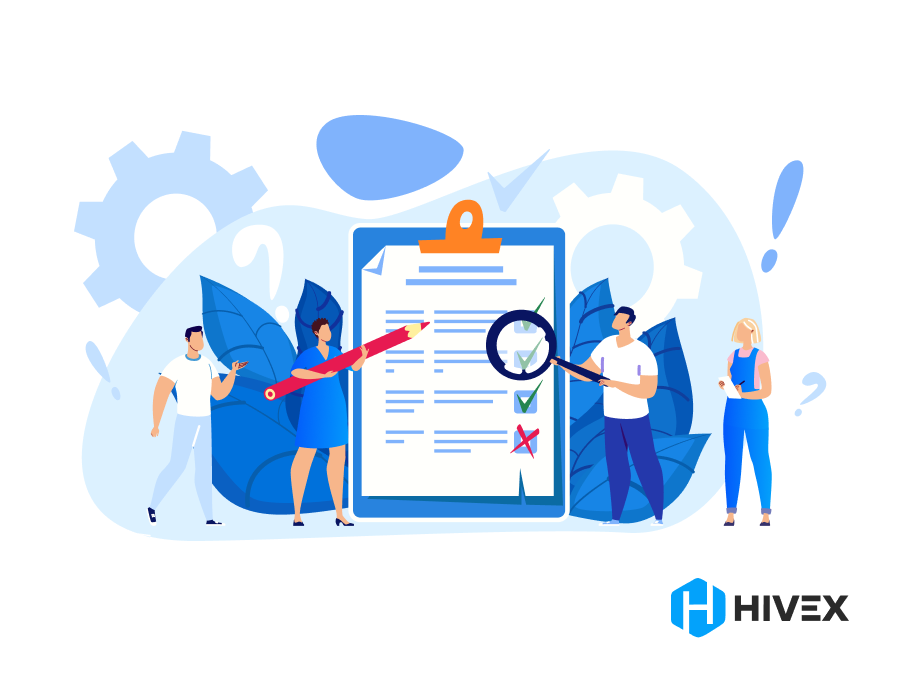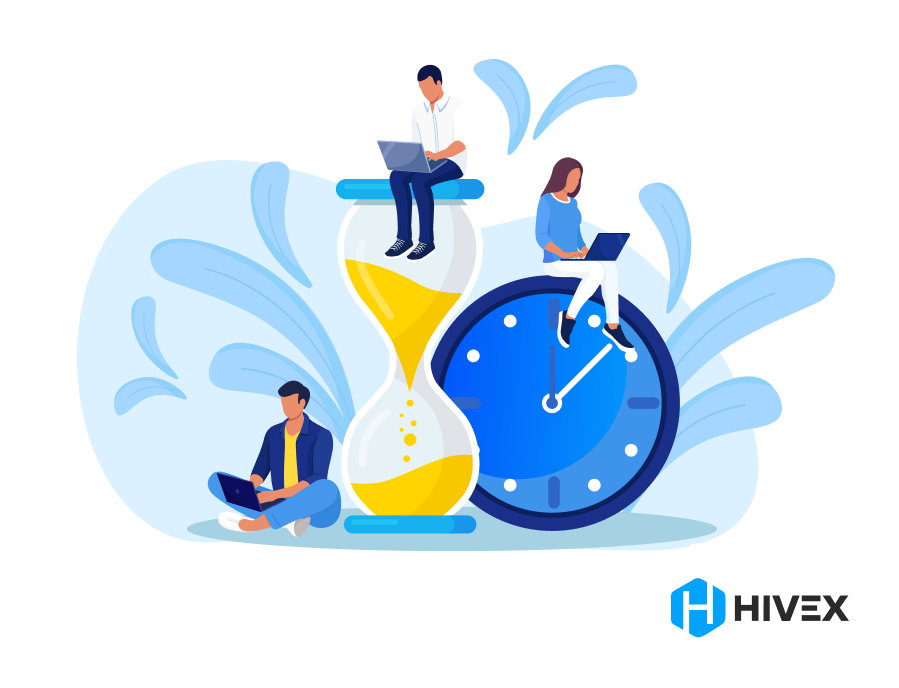How to Measure Developer Productivity: Key Metrics and Tools

Unlock startup success by mastering developer productivity measurement, focusing on quality, collaboration, and overall impact.
Understanding Developer Productivity
Developer productivity demystifies the proficiency and pace at which a developer can tackle tasks within a set period. It’s a nuanced mixture of efficiency, effectiveness, and the ability to contribute constructively to the team’s objectives.
Developer productivity transcends code lines and work hours, encapsulating task efficiency, problem-solving skills, team collaboration, and alignment with company culture, crucial for startup success.
Startups need to improve developer productivity.
It’s not about lines of code or hours spent programming. Instead, it delves deeper into understanding the quality of work, problem-solving aptitude, collaboration, and harmonization with the company and product culture.
Definition of Developer Productivity
Decoding software developer productivity also leads us closer to code creation dynamics. It shows how efficiently a programmer can convert their ideas into functional code, determining software development velocity and quality.
Developer productivity extends beyond code production. It embodies the developer’s ability to contribute to strategic ideas, team collaboration, and shared knowledge. This aligns with organizational goals and culture. This multi-faceted perspective provides a holistic understanding of programming productivity.
The Importance of Measuring Developer Productivity

Developers’ performance is directly linked to your startup’s results; thus, gauging their productivity is consequential. It provides valuable insights into your own software engineering team’s inner workings, exposing areas of strength and weakness that need attention.
Quantifying developer productivity offers various benefits, such as predicting project timelines and budgeting, facilitating resource allocation, and fostering innovation. It largely impacts the decision-making process, ensuring your product meets quality standards on time.
A meticulous evaluation of developer productivity measures individual growth and identifies opportunities for improvement. The strategic input it provides can significantly enhance motivation and retention, contributing to a positive, high-performing culture within your startup.
Factors Affecting Developer Productivity
To effectively measure developer productivity, a comprehensive understanding of the variables that influence it is paramount. These factors form a complex interplay of elements impacting every aspect of a developer’s work.
- The developer’s skill and experience level, which corresponds to proficiency and efficiency.
- The complexity of the developer’s tasks or projects.
- The quality of developer tools and technologies can greatly influence efficiency and speed.
- The work environment includes factors like company culture, team dynamics, and leadership style.
- Personal factors, such as job satisfaction, motivation, health, and work-life balance.
- The adequacy of training resources and opportunities for continuous learning and skill development.
Key Metrics for Measuring Developer Productivity

Identifying the fundamental metrics for gauging developer productivity takes a comprehensive approach that spans several aspects. These metrics encompass elements such as the lines of code written, time taken to resolve issues, frequency of releases, quality of code produced, and the level of collaboration and communication among team members.
Developer productivity is measured by key metrics that define their proficiency. A thorough analysis includes a review of the amount of code developed, turnaround time for problem-solving, regularity of software releases, standards for code quality, and benchmarks for effective teamwork and communication among development teams.
Lines of Code
Measuring developer productivity isn’t as straightforward as counting lines of code. Although it can provide an early look into the volume of work done, it’s equally essential to maintain efficiency and prioritize clean, compact code over sheer quantity.
Lines of code offer a preliminary gauge, but they can’t reveal the quality or function of the code. Developers with an approach towards effective and streamlined code may produce fewer lines but with maximum impact and efficiency. It’s not about more lines, but about the right lines.
Time to Resolve Issues
Productivity is measured by a developer’s ability to quickly resolve issues. This efficiency reflects not just their technical competence, but also their ability to troubleshoot and adapt to unexpected situations. Fast resolution of problems, thus, is an imperative indication of a highly productive developer.
The ‘Time to Resolve Issues’ metric is not merely a measure of speed, but also of effectiveness in diagnosing and rectifying bugs. This factor is especially pertinent in startup environments, where agile and expedient problem-solving directly impacts progress and goals.
The inclusion of ‘Time to Resolve Issues’ in the productivity metrics portfolio emphasizes fast and accurate troubleshooting. This, while not the only aspect of productivity, is a single metric that significantly influences the delivery timeline, ensuring your startup remains competitive and agile.
Number of Releases
Developer productivity is frequently associated with numerous software releases. This trait illustrates a high level of efficiency in executing tasks, resulting in rapid product improvement and adaptation to market demands.
Developer efficiency correlates with the deployment frequency of releases. Higher release frequencies typically indicate a team’s ability to swiftly fix bugs, implement improvements, and deploy updates, demonstrating their competence and responsiveness.
However, while frequent releases may suggest high productivity, it’s critical to maintain a balance. Overemphasizing speed could lead to compromised code quality or overlook vital feedback from end-users, distorting productivity measurement.
Code Quality
Code quality often reflects developer productivity. Efficient, well-structured code free from errors highlights technical proficiency and signals consistent attention to detail, a valuable marker of high productivity.
Generally, productivity increases can usually be noted with higher code quality. Such code is less prone to generating bugs or requiring revisions, thus reducing time spent troubleshooting and leaning more toward feature development and innovation.
Moreover, high-quality code enforces transparency and readability, vital for seamless collaboration within team environments. This leads to faster project turnaround times and improved development team productivity.
Collaboration and Communication
Impediments to effective communication among developers can significantly impede productivity. Clear, concise, and frequent communication reduces misunderstandings and removes barriers to seamless coding and problem-solving.
A collaborative development environment fosters synergy and shared knowledge among developers, further driving productivity. This synergy, where collective efforts and inputs yield more significant outcomes, is crucial to optimizing developer engineering teams’ output.
Tools and Techniques for Measuring Developer Productivity

Developer productivity can be measured by harnessing practical tools. Project management software, version control systems, and meticulous code reviews are indispensable in this process. These tools provide invaluable insights into developer output, efficiency, and overall contribution.
Refinement of techniques is crucial in productivity measurement. Employing quantitative feedback mechanisms offers a systematic approach to evaluating developers’ work. Fine-tuning these techniques regularly ensures you capture the full scope of a developer’s skills and contributions, leading to a transparent, objective evaluation and fostering productive engagement.
Project Management Software
Project management for software engineering teams yields rigorous data on project progress, individual tasks, time spent, and the overall development timeline. This information can act as a reflection of developers’ productivity, and maximizing their utility.
Extracting insights from project management software facilitates developer productivity understanding. Highlighting areas of strength and areas requiring growth contributes to a complete, effective productivity measurement system.
Version Control Systems
In assessing developer productivity, understanding version control systems is integral. These systems assist in tracking revisions, code changes, and who made those changes, providing insights into an individual’s contribution and the code’s evolution.
Version control systems streamline developer productivity evaluation. They enable the measurement of several core metrics such as speed and complexity of written code, frequency of commits, and managing work on multiple versions simultaneously.
Building upon this, developers’ commitment to effective version control system usage signals their approach to collaborative work. How they leverage this tool for tracking, reviewing, and managing code changes can mirror their productivity in a team setting.
Code Review and Documentation Tools
An efficient way to track developer productivity is through code review and documentation tools. These tools help assess code quality, critical to calculating productivity.
Code review and documentation tools provide a platform for developers to showcase their code and the logic behind it. This helps view productivity from the perspective of code robustness and maintainability. It’s not about the number of lines; it’s about efficient coding.
A precise measure of productivity can be achieved by leveraging these tools to analyze the speed at which errors are corrected and the clarity of written documents. Essentially, this can indicate productivity, but also competency and efficiency.
Quantitative Feedback Mechanisms
Invaluable to balanced assessments of productivity, quantitative feedback mechanisms offer insights beyond numbers. These mechanisms shed light on developer performance intricacies, capturing elements otherwise overlooked. The detailed data extracted enables customized strategies to elevate team productivity.
Focusing on quantitative feedback mechanisms illuminates crucial factors. Aspects such as programming standards, code reuse rates, and complexity measures can be meticulously evaluated. Attention to measurement detail is integral to nuanced and effective appraisals.
Scaling developer productivity becomes attainable when these mechanisms are deployed correctly. They provide the opportunity to leverage a wealth of data, unlocking a deeper understanding of individual and team performance. The potential they embody testifies to their essential role in enhancing developer productivity.
Best Practices for Effective Developer Productivity Measurement
Pioneering methods for robust evaluation of developer productivity emphasize the significance of clear, measurable goals. These targets provide a roadmap for developers, clearly outlining expectations and creating a framework for performance assessment.
Successful techniques to accurately gauge developer performance involve regular feedback and performance reviews. Alongside this, creating an environment that fuels continuous learning and skill development is crucial to nurturing a productive and innovative engineering team.
Set Clear and Measurable Goals
In order to determine how productive developers are, clear objectives must first be set. These goals serve as a benchmark for evaluating individual developers’ performance, helping startups accurately gauge efficiency and productivity.
Precise goals pinpoint challenges, revealing areas where developers may need support or additional training. They also provide a standard that developers can aim for, thereby enabling them to achieve and even surpass expected outputs.
Lastly, clear and measurable objectives ensure that both startups engineering managers and developers understand what is expected. This ensures alignment between desired outcomes and daily tasks, bridging the gap between company vision and individual contribution.
Regular Performance Reviews and Feedback
Ensuring regular performance reviews is paramount to gauging accredited developers’ productivity. It uncovers performance trends, highlighting areas of excellence or needed remediation, and promoting evidence-based technological advancement.
Performance feedback fosters developer efficiency by pinpointing skill gaps and improvement areas. Consistent, constructive feedback leads to refined work, reduced error frequency, and aligned development objectives, contributing to an efficient software development process throughout.
Encourage Continuous Learning and Skill Development
Inextricably tied to a developer’s ability to perform efficiently is their commitment to continual learning. Startups should, therefore, prioritize fostering an environment that encourages developers to stay updated with technology trends. This includes learning about tools, techniques, and coding languages.
Continuous skill development influences software developers” productivity positively. By refining their skills regularly, developers can better understand complex problems, reduce code, and curate innovative solutions. Startups that invest in developers’ skills can boost software engineering productivity.
Foster a Positive and Supportive Work Environment

Workplace environment can significantly impact developer productivity. Positive, harmonious, stress-free, and encouraging ambiance fosters innovation, accelerates problem-solving speed, and enhances overall performance. Mechanisms to manage stress, flexible hours, and comfortable workspace setups can drive higher productivity.
Supportive work culture plays a pivotal role in developer efficiency. It encourages information sharing, asking questions, and learning from mistakes, making a considerable difference in individual performance and team synergy.
Acknowledgments and rewards motivate developers to deliver high-quality work promptly. Incorporating regular appreciation, recognizing exemplary code, and celebrating team successes helps strengthen the bond between team members. This promotes a feeling of belonging and productivity.
Regularly Review and Refine Measurement Techniques
Evaluating developer productivity is not a one-time event. It’s an ongoing process that requires regular review and refinement of your measurement techniques. As your startup grows and evolves, so should your methods to ensure they remain accurate and relevant.
Periodic reviews allow you to understand performance trends over time and identify impactful changes. This might be the first recommendation from the development team or even a tech-based improvement that could streamline workflow and boost productivity.
Refining metrics ensures they reflect developer productivity. It prevents reliance on irrelevant, outdated metrics which may cause skewed reviews. A regular refinement process ensures your appraisal system stays aligned with your company’s current objectives.


